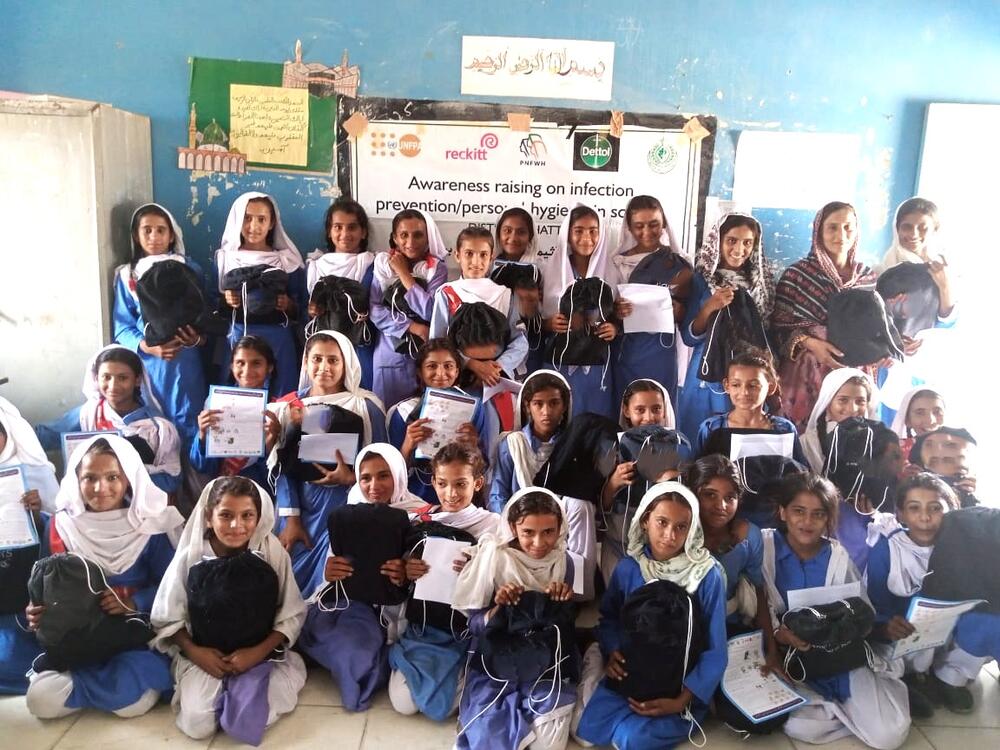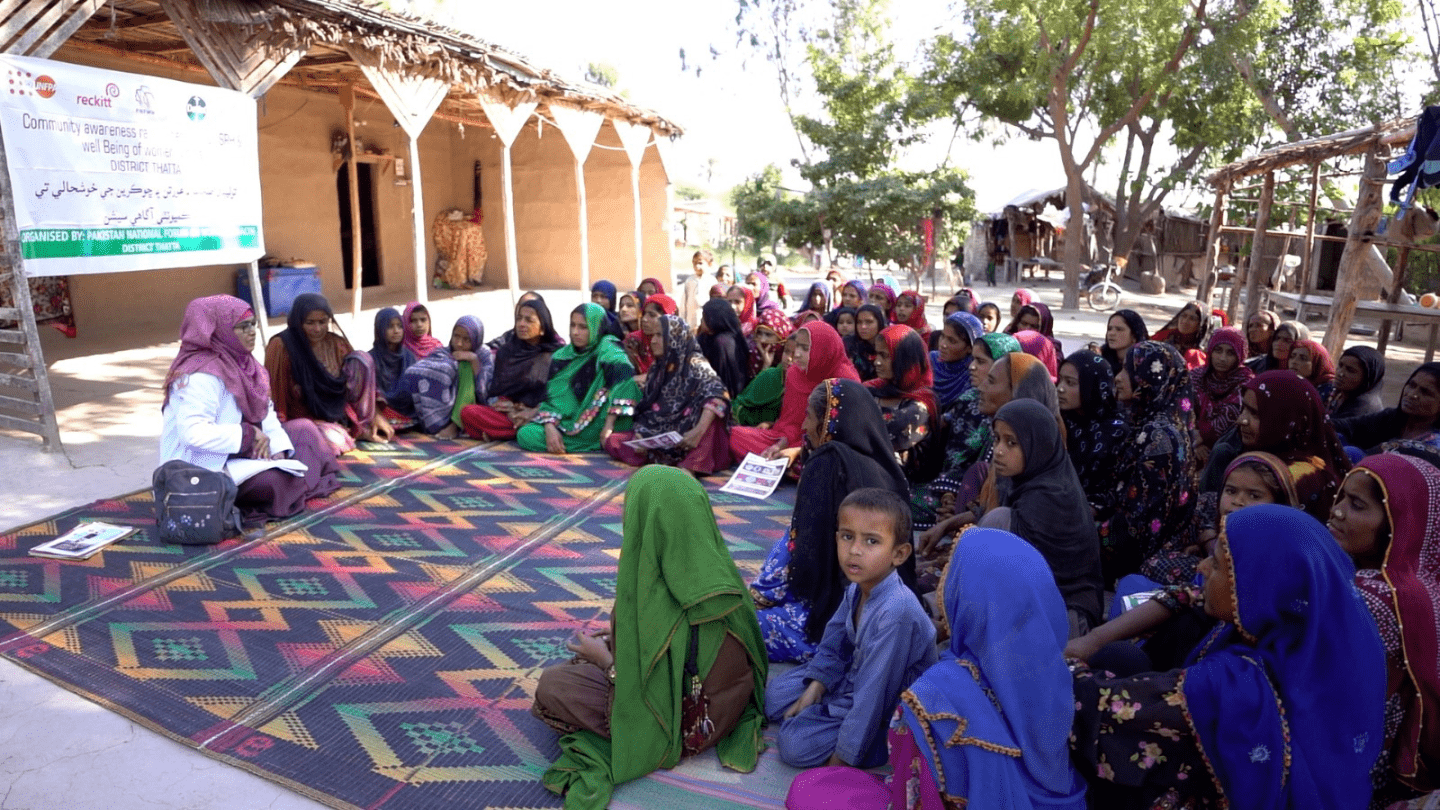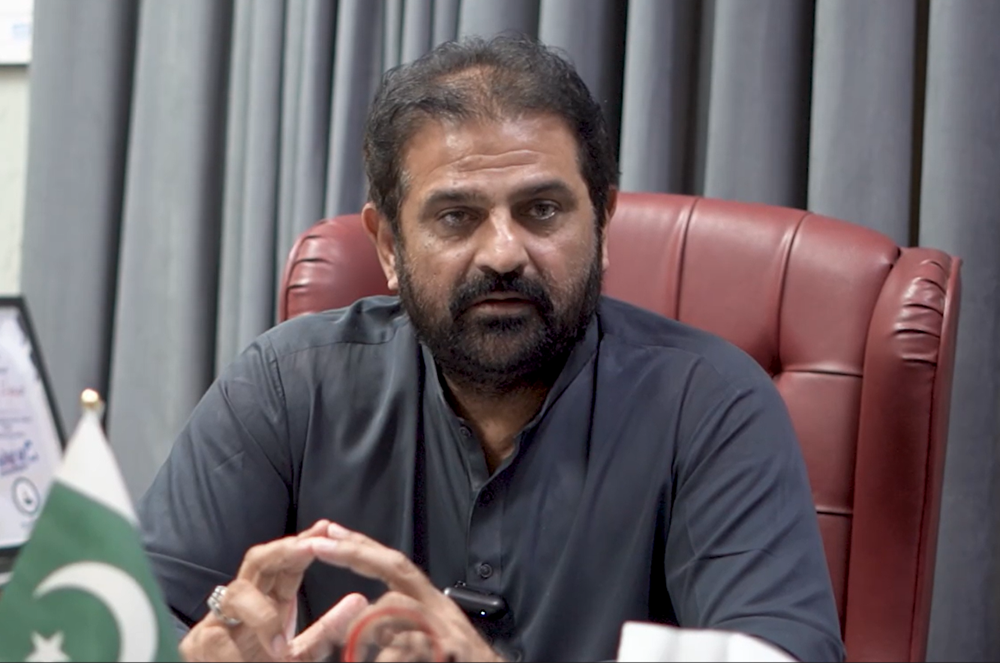On a warm afternoon in the quiet village of Mirpur Sakro, Thatta district, a small sewing machine hums steadily in the corner of a modest home. Sitting beside it, Farah Bibi, 25, folds pieces of soft cotton into neatly stitched reusable sanitary pads. It's a simple task—yet revolutionary in a place where even uttering the word "period" is often met with silence.
What began as a personal struggle for Farah, trying to manage her menstrual health during long van rides to college in her white uniform, has now become a lifeline for hundreds of girls and women across nearby villages. The cost of disposable sanitary pads was too high, and the fear of staining or embarrassment kept many girls away from school or social events during their periods. For Farah Bibi, the solution came not from a shop, but from her own hands.
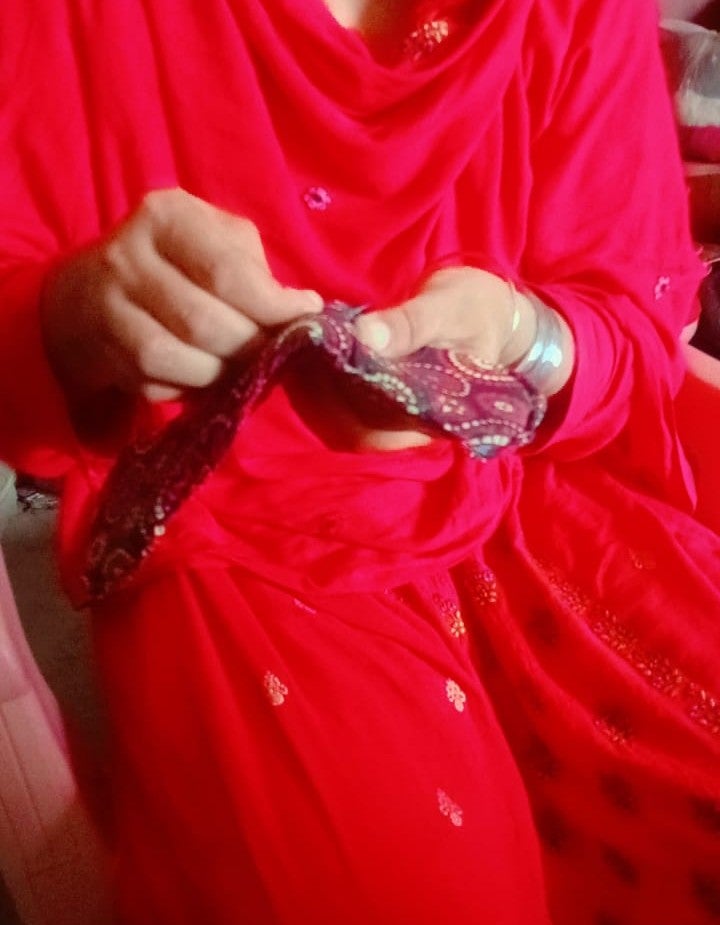
I used to avoid going to functions. My friends would never wear light-colored clothes during their periods. It felt like we were supposed to be invisible during those days. I didn’t want that for the next generation.
She started with one: a homemade reusable pad. Then another. Soon, she was making them for her sisters, her neighbors, and eventually for surrounding communities. With her brother’s help, she refined the design by adding cotton layers, waterproof sheets, and a comfortable finish. Her pads, sold at half the market price, could be reused for up to six months, offering an affordable, eco-friendly alternative to commercial products.
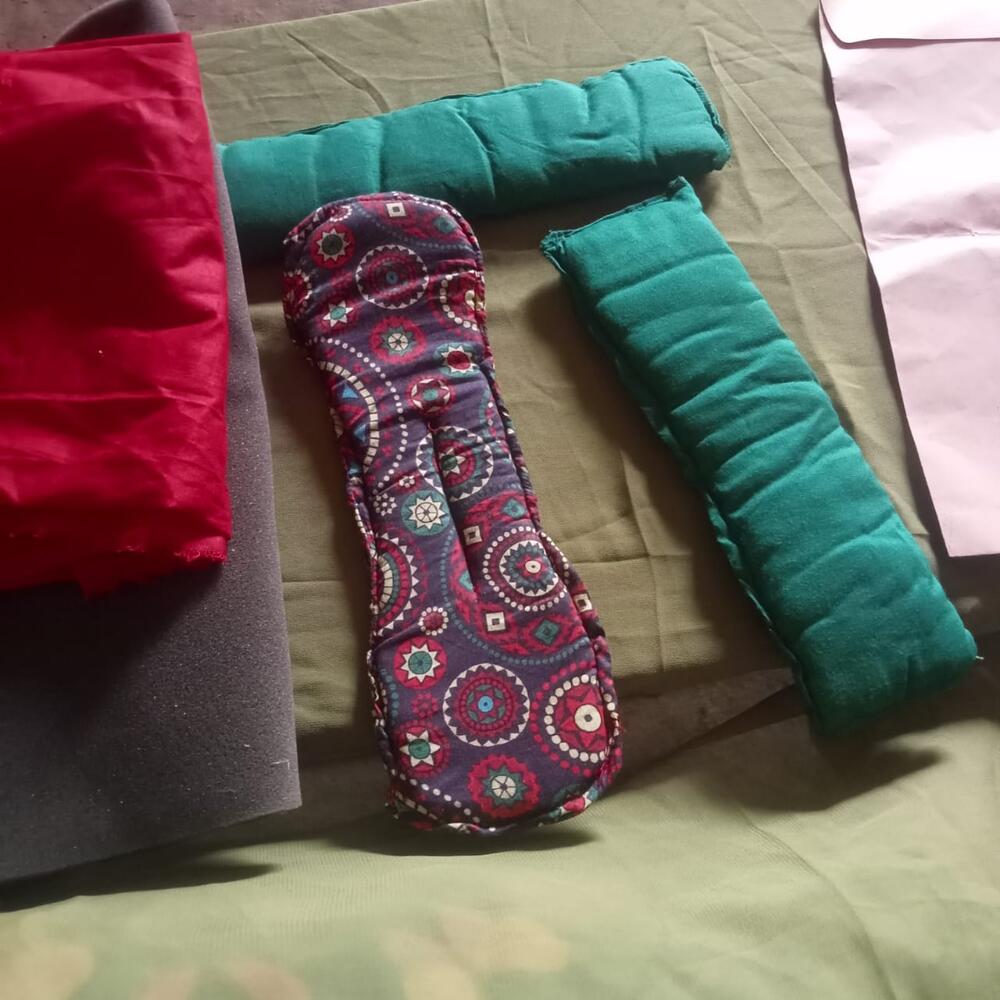
Farah Bibi’s innovation caught the attention of a visiting lady health worker, who encouraged her to expand the idea further. With support from local social welfare groups, and later through training and guidance from UNFPA Pakistan’s reproductive health project in Thatta, Farah Bibi’s work gained the hygiene and safety backing it needed to scale. She didn’t stop at making pads, she became an advocate, educating other women about menstrual hygiene, reproductive rights, and safe childbirth practices.
UNFPA Pakistan’s Role in Breaking Taboos
Farah Bibi’s story is just one among many empowered through the ‘Promoting Reproductive Health & Wellbeing of Women and Girls in Thatta District’ project, an initiative led by UNFPA Pakistan, with support from Reckitt Pakistan. The program is rooted in a simple but powerful mission to dismantle the cultural barriers surrounding menstruation, reproductive health, and childbirth that persist in rural Pakistan.
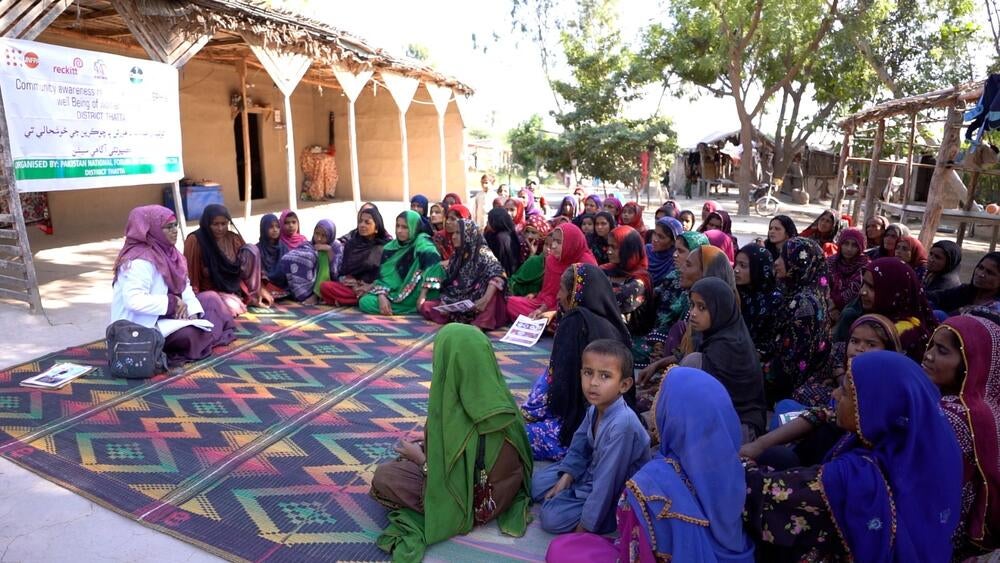
In communities where such topics are rarely spoken of, let alone taught, the initiative is building awareness and transforming lives. Health workers are trained to educate women and girls on critical issues like menstrual hygiene management, infection prevention, the “three delays” in childbirth, family planning, and more. These efforts are not confined to clinics; they are reaching homes, schools, and the airwaves.
The training we received through UNFPA has strengthened our capacities in reproductive health and menstrual hygiene. Now, women who previously knew nothing about these topics are learning about birth spacing, personal hygiene, and reproductive rights.
Dr. Safdar Ali Shah, District Health Officer, Thatta.
Farah Bibi is now a symbol of what can happen when education, innovation, and support intersect. In a society where women are often expected to stay silent about their own bodies, her voice and her pads are helping to rewrite that narrative.
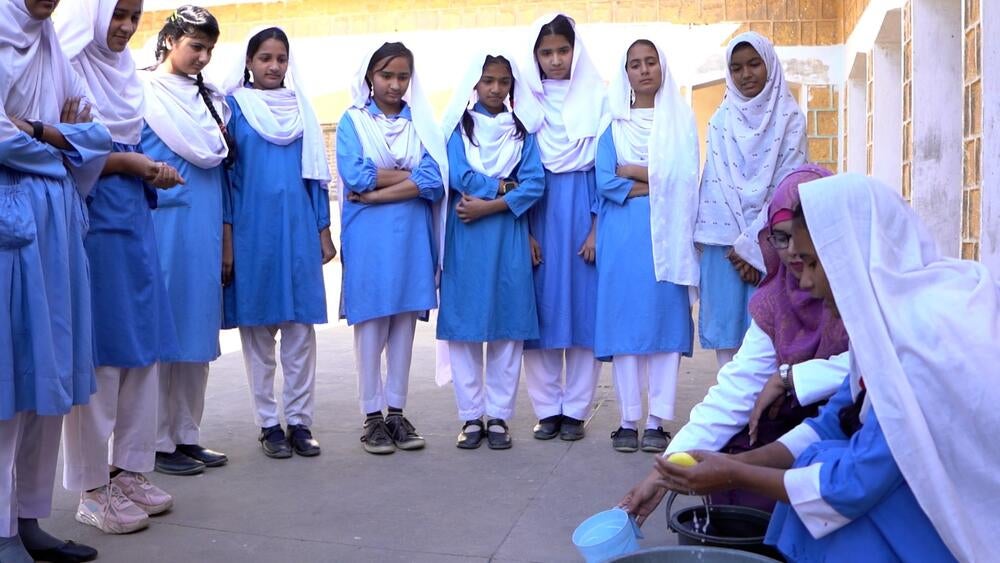
This cycle stays with us till we’re 50 or 60, how long will we hide? How long will we be ashamed? We have to live our lives, study, and succeed. Periods shouldn’t stop us, they’re just a part of us.
On Menstrual Hygiene Day 2025, Farah Bibi’s story is a powerful reminder that dignity begins with awareness, and change begins at home.
